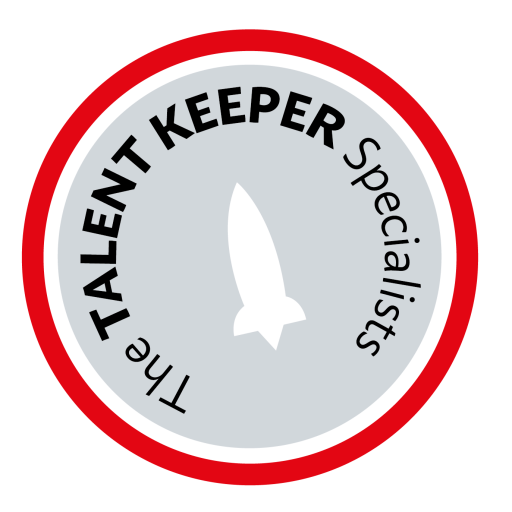Client case study – CIPR
The Challenge
 The Challenge
The Challenge
The 2014 State of the Profession findings were a breaking point in the Chartered Institute of Public Relations (CIPR) in taking action on equal pay and gender balance.
Amongst other defining statistics, the survey identified a mean average pay gap of over £12,000 in favour of men, as well as a lack of women operating at a senior level. These statistics are in context of an overall industry that is just under two-thirds female. As a policy commitment the CIPR aimed to tackle this issue across five broad areas:
- Deliver a support network for women in public relations to successfully navigate the challenges of maternity leave and then return to work confidently
- Encourage greater acceptance of flexible working practices
- Increase the number of female role models
- Provide better mentoring opportunities
- Reflect on transparent pay structures as a solution to equal pay
Client.
To specifically tackle the issue of maternity leave and return to work, in September 2014 the CIPR reformed our membership offering. Made available from Monday 1 September 2014, the ‘Managing Your Maternity Leave’ package included:
- Up to 12 months payment holiday from CIPR membership – to ease the financial burden of Statutory Maternity Pay
- Up to 12 months discretionary CPD credits – to maintain levels of accreditation
- Quarterly KIT (Keeping in touch) emails – providing bite-size access to the latest on-demand learning and development opportunities
- Access to a private online community – to promote knowledge sharing, advice and support
The package was announced in context of research published in August 2014 from the Chartered Management Institute (CMI) which suggested that “women begin to fall behind at the age when they are most likely to be starting a family”, and from research published on 12 August 2014 by Slater & Gordon which found that “a third of managers would rather employ a man in his 20s or 30s than a woman of the same age for fear of maternity leave and that six in ten mothers felt side-lined from the moment they revealed they were pregnant”.
This was supported by Ruby McGregor-Smith, CBE, Chair of the Women’s Business Council and Chief Executive of Mitie Group plc, the FTSE 250 strategic outsourcing company.
In publishing this package the CIPR felt they needed to offer more substance and guidance to inform and educate maternity-leavers. The CIPR’s aim was to deliver greater confidence and self-belief, and ultimately deliver a greater number of women effectively returning to work in PR.
The Solution
 The CIPR approached the Talent Keeper Specialists to create a bespoke suite of materials for their members and non-members to specifically address an education and knowledge gap on maternity leave and returning to work.
The CIPR approached the Talent Keeper Specialists to create a bespoke suite of materials for their members and non-members to specifically address an education and knowledge gap on maternity leave and returning to work.
The guides were to be produced for the benefit of maternity-leavers in CIPR membership.
The Outcome
The Talent Keeper Specialists produced a series of ten guides containing a series of hints and tips on managing maternity leave, and featuring practitioner case studies and points of view. These were published in October 2014.
Guide 10, Best practices for managing maternity leave for line managers, was made publicly available and covers issues facing ‘maternity leavers’ and their managers before, during and after maternity leave. It also features a 12-point plan and reflective exercises, including information on planning and maintaining a structure for Keep in Touch (KIT) days and how to manage broader career progression conversations.
The other nine guides, made exclusively available to CIPR members, covered:
- How to ensure a smooth handover to and from your career break
- How to ask for and make the most of Keep In Touch (KIT) days
- How to pitch for flexible working
- How to renegotiate your role
- How to set yourself up for a great return
- How to reignite your confidence
- How to ensure a strong first 90 days back in the saddle
- How to draw boundaries between work and home
- How to get on the right people’s radar and get ahead when you’re back
The CIPR’s Feedback
 “Working with The Talent Keepers was an easy process from day one. After providing a comprehensive selection of prospective solutions to tackle the challenge, a clear structure in planning out the process of creating the guides was delivered, with the team always supplying their work before the deadline.
“Working with The Talent Keepers was an easy process from day one. After providing a comprehensive selection of prospective solutions to tackle the challenge, a clear structure in planning out the process of creating the guides was delivered, with the team always supplying their work before the deadline.
Jessica’s understanding of the issue led to the additional production of the publicly available guide for line managers, doing this was important in addressing a knowledge gap and has proven to be popular (the third most downloaded PDF in the last quarter of 2014).
Since the production of the guides, we have seen regular stream of downloads and positive feedback on social media. Regular comments from members focus on “the essential nature” and “informative but not restrictive language” of each piece of guidance, always crediting the confidence that they inspire. This is testament to the quality of the final product.
Finally, Jessica’s infectious enthusiasm for the issue, alongside her energy and genuine drive to positively effect change make her stand out one of the most inspirational people I have worked with.
Having established an incredibly useful working relationship with Jessica, I look forward to working closely with the Talent Keeper Specialists over the coming years as we continue our work on equal pay and gender balance.”
Thanks to Andy Ross, Public Relations & Policy Manager for this case study.

